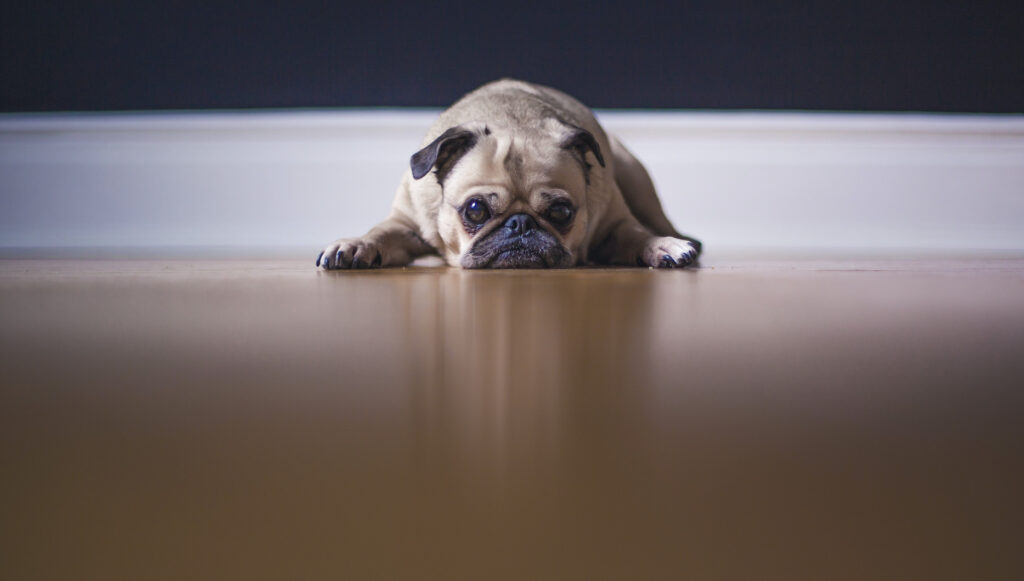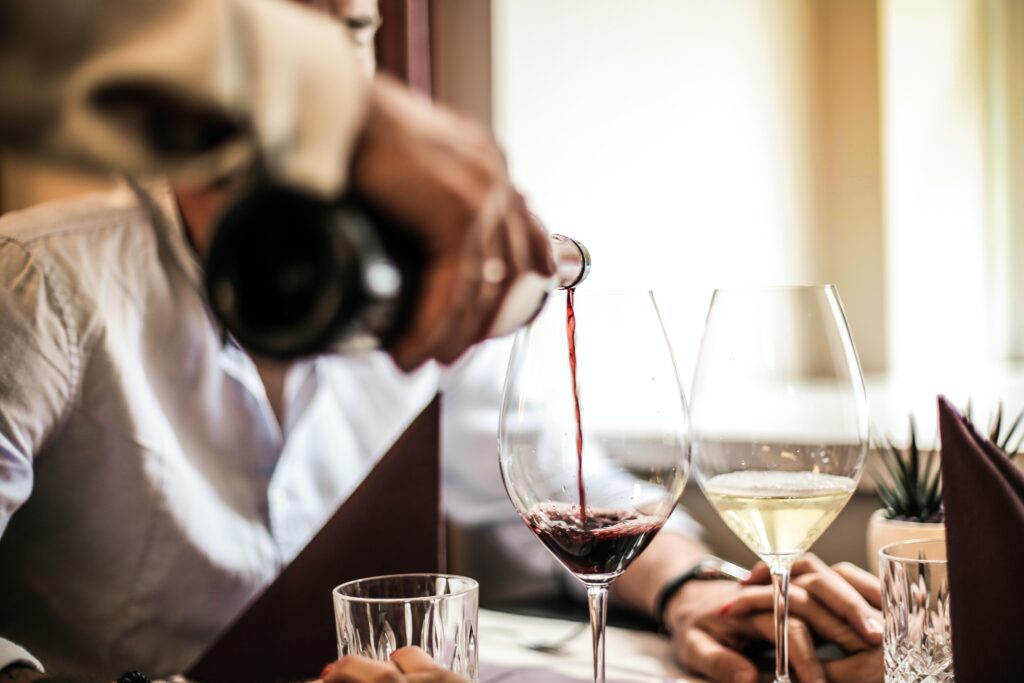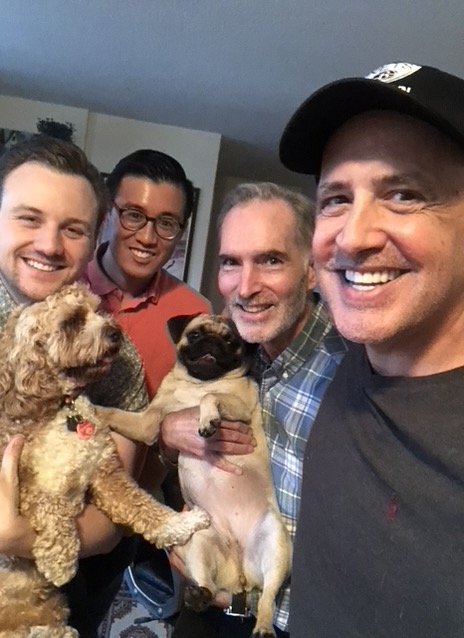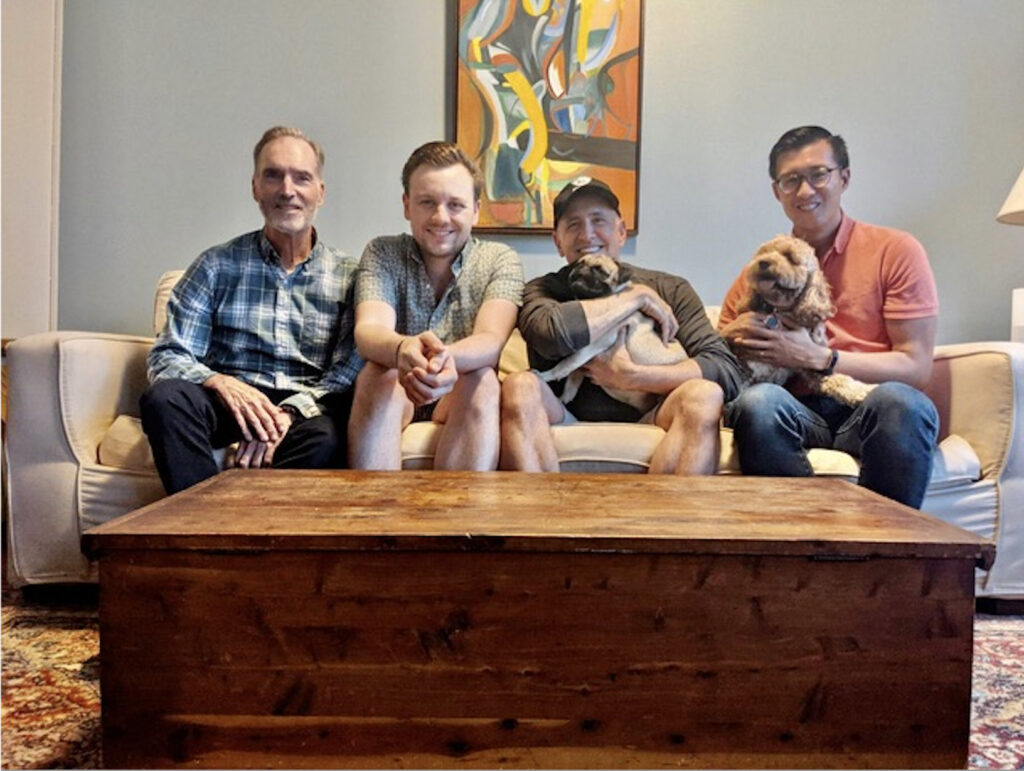I ignored the younger generation…then I met the Millennials next door
How a chance encounter with my much-younger gay neighbors helped me bridge the gay generation gap.
The first time I noticed the gays beneath me was in the elevator, on the way up to my 10th floor high-rise apartment on the Upper East Side. I discerned that they were new tenants, because seeing a young same-sex couple in my building was a novelty, especially an interracial, early thirties couple (one white, one Asian).
We said a collective “hello,” they got off on the fifth floor, and I dismissed their presence with a whiff of “God, how things have changed since I moved to New York in 1987,” before going about my day. I never expected to see them again except in those forced elevator smiles that make up so much of high-rise life.
I’m 57, and besides the occasional younger-man hookup or conversation with the computer expert around the corner, my conversations with any men under forty are a rarity.
I’m also the youngest of five children. Since I’ve worked from home for years, I don’t even have office-mates to keep me posted on Queer World USA. I do write for a lot of young editors in publishing, but today those “conversations” are almost always held via email or zoom. The closest thing I have to consistent relationships with younger gay men are the trolls who write vicious comments under my articles and love to tell me how old I am.
But I did see the gays beneath me again, because they got a puppy (a cockapoo) not long after I got mine (a pug), around February 2020, and I would take mine out for a walk early a.m. only to see them desperately trying to get their dog to pee on a wee-wee pad. Covid hit, and in the midst of all the glove-wearing and hand-washing and general panic over toilet paper shortages, there was another crisis in the making—neglected pooches. My pug (Deja) doesn’t favor fetch, and the park’s dog run was closed off.

Enter Ella, their cockapoo. Our walks were pretty much on the same timer, and the two dogs started playing in the lobby. Because it was such a strange, surreal time, with so little communication with anyone, the short talks I had with Ella’s dads were significant parts of my day. You get close awfully quick with the few people you meet during Covid, a sort of urgency in times of chaos effect. Six feet apart, we’d briefly discuss the pandemic, the monster that is (was) 45, Black Lives Matter, and, perhaps most important during lockdown, what to binge on Netflix. They liked horror flicks just as much as I did.
There was a connection I hadn’t felt in a long time, that had nothing to do with the pandemic around us—two different generation’s point of view. I was slowly drawn into their perspective on life and how it was pretty similar to mine, save the semantics. I kept waiting for them to somehow negate my older self, but if they dismissed me as irrelevant, it was hidden behind their upbeat eyes. At a party a couple of years ago, I made an off-the-cuff remark that Britney Spears danced like a white girl and got woke-lectured by a 20-something gay man on my insensitivity, ignorance, and racism. I made a mental note that night to never again allow myself to get into an argument with anyone young enough to be my child.

Come Memorial Day Weekend, and with no plans, I did the unthinkable: I threw Covid caution to the wind and invited Henry up for a drink—Justin was out of town. I live with my best friend, Armand, who had gone off to the Hamptons, and the isolation was unbearable. Henry agreed, happily, and we sat far apart in the apartment, feeling like schoolgirls who were about to get caught skipping class. The cocktail attire was sweats and tanks, and we talked for hours, covering every topic the guilty time would allow, from New York in the Eighties to “Drag Race,” from the Karens of the world to the difference between dating when I was their age (I met guys in physical settings) to now (they met on Tinder). Our dogs played on the floor beneath us.
I was most struck by Henry’s curiosity when I spoke of living in New York during the AIDS pandemic, because, in my experience, it’s so often overlooked or ignored by younger men. I once slept with a millennial who drilled me afterward with a hundred questions about my sexual history—but got annoyed when I quizzed him—which surprised me until I learned that he was a gay spokesperson whose brand was being young, hunky, and monogamous. HIV wasn’t his foundation of fear; it was losing Instagram followers due to exposure that scared him.
My evening with Henry left me with a sense of community I’d not felt in a while—the act of befriending neighbors with similar but different backgrounds. There was no sense of “the old being forced to talk to the young, or vice versa.” If I wasn’t sure how the visit went, my answer soon came when Henry and Justin insisted Armand and I join them for drinks a few weeks later, at their apartment.
Armand is 17 years older than I am and has an even more select group of close-to-his-age friends than I do. He’s shyer than I am, and nervously put on nice pants, shirt, and mask to greet the “kids.” He told me he was worried he’d have nothing of interest to say. Armand’s not much of a drinker, but, once there, clutched his wineglass like a security blanket. I think he was worried it would turn into “Who’s Afraid of Virginia Woolf,” the gay-Covid remake.
Henry and Justin couldn’t have been better hosts, starting with making sure there was plenty of food and drink, to being converse in pretty much every subject that came up, whether it was political, pop, or puppy training. They were engaged, not married yet, had picked out a venue and a date, and knew the year in which they’d be having children, and how. They’d chosen to live on the Upper East Side for the simple economical reason that you get more space for your money.
Both men, from what I gathered, came from modest backgrounds, but had excellent jobs, one in technology, the other in medicine. Their tales of meeting each other’s families were typical of most straight couples I know—funny and sweet mixed in with a bit of drama. I forgot to ask them if, like pretty much everyone else who has children after they move into the building, they eventually planned to get a house in the suburbs.
Upstairs, after the evening was over and the dogs had stopped playing, Armand admitted he was a little dumbfounded over everything Henry and Justin possessed, given the restricted upbringing he and I had been submitted to (while, at the same time, acknowledging that things were still tough for our downstairs neighbors). We talked about how marriage was off the table when we were that age, how no one even discussed kids, and how you lived in the gay part of town for safety, first and foremost. He also said they were just about the nicest couple he’d met in ages.

I felt the same way, and, on some level, had probably hoped to find fault in their lifestyle, a fly in the ointment. After all, shouldn’t all those twinks and millennials who troll me be punished for not experiencing the same level of hate and discrimination that haunted me from day one of coming-out-hood? Shouldn’t I return the vicious favor to the gay youth of today, even though, admittedly, I have no idea what particular challenges they’re facing? Life is never a picnic, no matter how gay the surroundings.
The answer, which came to me with all the possibilities of the present, was an obvious “no,” because their lives, equality, that picket fence and two kids and a dog, if wanted, is what my gay self, and my gay friends and activists, were fighting for all those light years ago. While I’d earlier been worried Henry and Justin might dismiss my life, in my own way I’d dismissed a little bit of theirs. I rushed to judgment in the same way so many had rushed to judge me. Either generation’s cancelation of the latter is criminal, and all too common, and we all need to keep in check our judgment.
Because what they have is what this fight has been all about.






